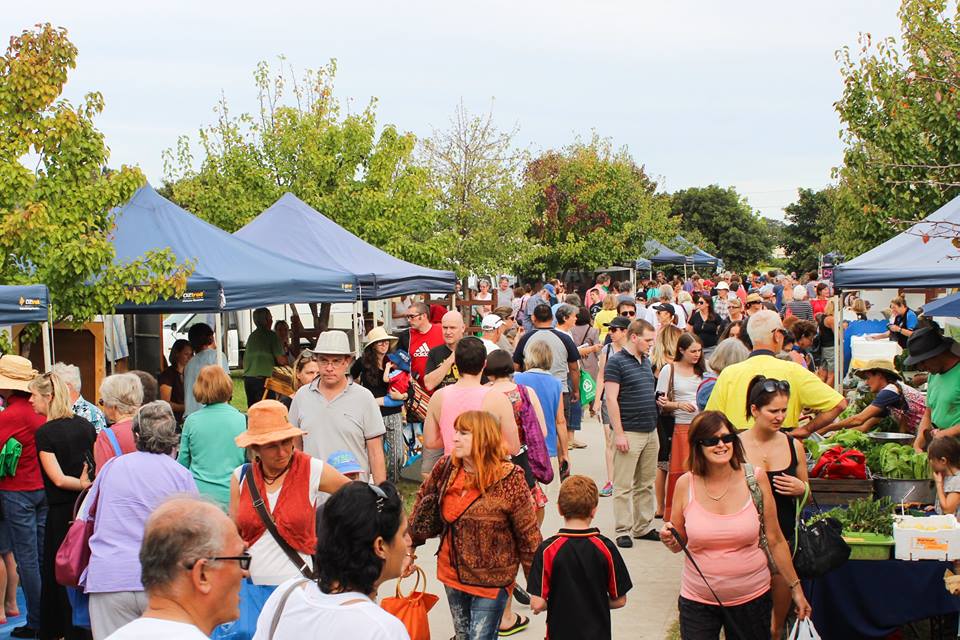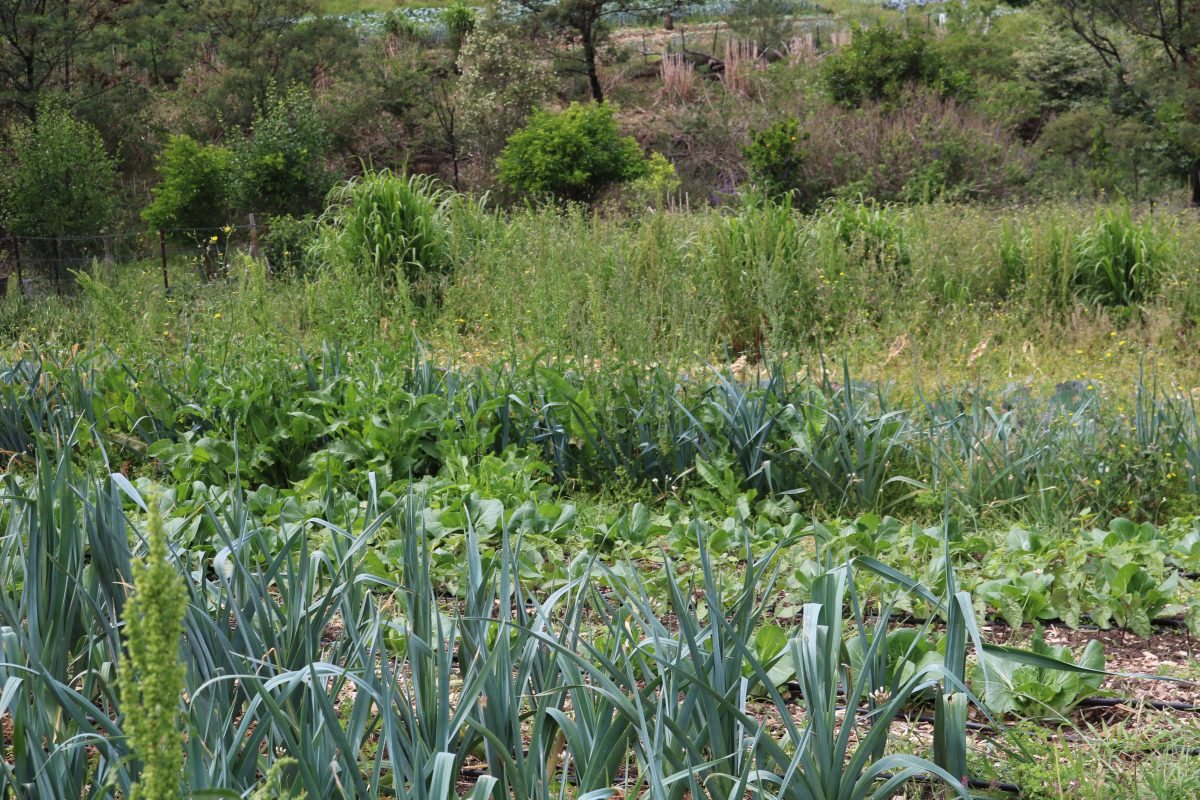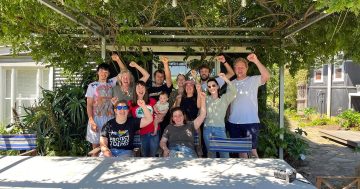
The popular SAGE Farmers Market at Moruya could be impacted by the new regulations on small-scale growers. Photo: SAGE Facebook.
Small-scale market gardeners in NSW are concerned that newly proposed regulations will place undue pressures on their production without benefit to consumers.
The new 2025 NSW Draft Food Regulations will require businesses growing leafy greens, berries and melons to obtain a licence and pay hundreds of dollars in inspection fees in order to comply with new codes put in place by Food Standards Australia and New Zealand (FSANZ).
Under the proposed changes, all growers must pay a one-off fee of $85 to apply for a licence, which will then cost between $75 (for a property size of under 10 hectares) and $5170 for a larger business with more than 50 full-time workers.
According to the draft regulations, businesses will also be required to pay “an inspection fee of $370 per hour for an authorised officer to inspect the premises to determine compliance. Frequency of inspections will depend on business risk.”
Eliza Cannon has worked as a market gardener on Walbunja Yuin country, near Moruya, and is also a national committee member of the Australian Food Sovereignty Alliance (AFSA). The farmer-led, not-for-profit advocacy organisation works towards democratising and decolonising food systems.
Ms Cannon told Region that the proposed regulations were not scaled appropriately and would negatively impact small-scale growers.
“The NSW Food Authority hasn’t demonstrated that small-scale growers who sell directly to customers pose a risk to consumers, so the current changes to the regulation are an unnecessary imposition,” she said.
”These changes will increase the cost of fresh food, increase the financial burdens on growers and provide no measurable safety benefit to consumers.”
AFSA and other small growers in NSW are calling for a third category of micro grower for those farming on less than two hectares. They say the current draft regulations don’t account for the fact that small growers who sell directly to customers post a negligible health and safety risk to consumers due to the freshness of produce and short supply chain.
Small growers typically have strong community connections and sell directly to customers via community-supported agriculture veggie-box schemes and farmers’ markets, or to local businesses such as restaurants and independent grocers.
Ms Cannon said micro growers shouldn’t be required to pay burdensome fees, and that doing so would make it unsustainable for these producers to operate.
“Paying $370 an hour for an inspector to make sure we’re doing our job properly is simply not viable for small producers,” she said. ”These costs pose a serious barrier to young farmers intending to grow nutritious food for their communities.”
The flow-on effects of the proposed changes could see towns such as Moruya lose producers from the popular SAGE farmers’ market, leaving locals with no other option than to go to the supermarket and buy produce that has travelled much greater distances.
Eltan Mestan is the garden manager at ErinEarth Community Garden in Wagga Wagga and is also one of the main organisers of the 2025 Riverina Harvest Festival. He told Region that the aim of an event like Harvest Festival was to connect growers with artisan makers and customers looking for an alternative to the big supermarkets in regional towns, but there already was a great deal of pressure on local farmers who may not be able to cope with extra costs and administration.
Mr Mestan is concerned that there has not been sufficient consultation, with many of the local growers in his network unaware of the proposed changes.
“These farmers are out there working their butts off to make a living, protect the planet and grow wholesome food that’s good for you,” he told Region.
”Before they put the legislation through, they need to speak to the people actually growing the food.
“Farmers on the ground have a better understanding of how this is actually going to work compared to someone sitting behind a desk in the city.”

Green Connect provides weekly or fortnightly vegetable boxes to about 240 households in the Illawarra. Photo: Jen White.
In Wollongong, Green Connect is a food and farming not-for-profit group growing on around four hectares. It provides fresh-vegetable boxes to 240 households on a weekly or fortnightly basis. General manager Robert Servine said the proposed legislation would create financial and administrative stress on the operation.
“We’re a not-for-profit and stretched for finances as it is. There’s a lot of paperwork involved. We’d have to keep even more records than we already do, which increases the staff and admin pressure,” he told Region.
“With the additional costs of licences, inspections and increased staff hours, it’s not outside the realms of possibility that we’d need to increase the price of our veggie boxes.”
Many small-scale growers such as Green Connect use water deemed safe for drinking to wash and irrigate their crops, but the draft regulation is unclear about whether this water will require further sanitising and subsequent testing.
Several producers who Region spoke to expressed frustration at the lack of clarity and feedback, especially as the current consultation period is taking place over the busiest season for growers and directly before Christmas. Others said the regulations failed to distinguish between the total area of a property and the total area of food production; would a grower living on an 11-hectare property but only cultivating two hectares be subject to the higher or lower fee structure?
Ms Cannon said the best course of action for small-scale producers – especially those at the micro level – was to lodge a submission expressing their concerns about the draft legislation. She said they should be specific with details about what their farming operation looked like, and why their direct relationships with customers constituted a low-risk product.
The draft legislation is open for comment until 22 December. Find out more and have your say via the NSW Food Authority.








